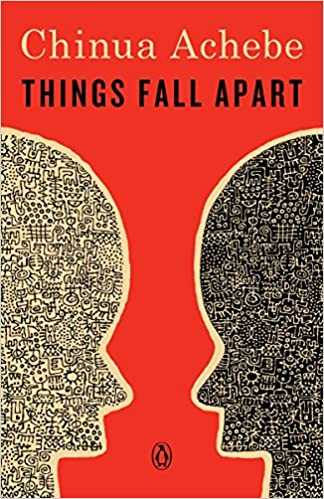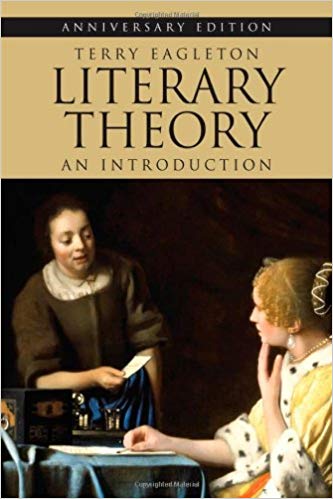Literary Theory
M, W 2:00-3:20 pm
LANG 104
Office: LANG 408D
Contact: Masood Raja
Introduction:
This course aims to introduce you to the major critical approaches available for analysis and appreciation of literary works. The terms theory and literature themselves are not free of controversy and have been defined in numerous, often conflicting, ways. This course will apprise you of the major debates in the field of literary theory and their impact on the critical reading of literature in particular and the real-life culture in general.
We will also discuss the politics and poetics that constitute what we perceive as literary and the role of the academy and popular culture in defining and refuting any hard boundries. In today’s world, literary theory is increasingly in constant embrace with the culture, and this course will take into account the overlaps and the disjunctures between the critical and the cultural theory.
Discussed also will be the role of literature in defining or articulating the world around us, and, in certain cases, the role of literature in normalizing the hegemonic drive of the powerful. Such an approach to literary theory will make us question our own privileged place in the university setting and in the world and help us articulate personal goals of becoming politically aware and culturally diverse world citizens. Throughout this course, we will attempt to relate our in-class activities to the world of the lived experience beyond the university campus.
This is a demanding and writing-extensive course, so please come prepared for a challenging and mentally stimulating experience.
Required Texts:
Eagleton, Terry. Literary Theory: An Introduction, 2nd Edition..
Handouts:
Videos:
Course Policies and Requirements:
You are expected to come prepared for class: This involves reading the assigned texts, listening carefully to your peers, and contributing your views in a collegiate and stimulating way. Attendance is mandatory.
Distribution of Points:
Weekly Quiz 100 Points
Group Presentation 300 Points
Class Participation 100 Points
Mid Term Paper 200 Points
Term Paper 300 Points
Total 1000 Points
YOU MUST FINISH ALL MAJOR ASSIGNMENTS TO PASS THE COURSE
Class Participation (100 Points)
As this is a seminar based on a discussion format, your thoughtful participation is essential to the success of the class. I encourage collegiate, open, and thought-provoking class discussions. Remember, we are all here to learn, so let us share our ideas and knowledge to make this class into a dynamic learning experience.
Term Paper: (Guide) (300 Points)
The final term paper will be due on the last day of class. The paper should be 12-15 pages, with a clearly defined thesis and a coherent argument using one or two of the theoretical approaches discussed in class. I would encourage you to choose your topic early and do extensive research. I will be available to assist during all stages of your research and composition process.
Attendance:
You are expected to attend the class regularly. You will be in the danger of failing the course if you miss more than TWO class sessions.
Cheating and Plagiarism:
Cheating and plagiarism constitute fraudulent misrepresentation for which no credit can be given and for which appropriate sanctions are warranted and will be applied.
“Cheat” means intentionally to misrepresent the source, nature, or other conditions of academic work so as to accrue undeserved credit, or to cooperate with someone else in such misrepresentation. Such misrepresentations may, but need not necessarily, involve the work of others. As defined, cheating includes, but is not limited to:
Obtaining or retaining partial or whole copies of examination, tests or quizzes before these are distributed for student use;
Using notes, textbooks or other information in examinations, tests and quizzes, except as expressly permitted;
Obtaining confidential information about examinations, tests or quizzes other than that released by the instructor;
Securing, giving or exchanging information during examinations;
Presenting data or other material gathered by another person or group as one’s own;
Falsifying experimental data or information;
Having another person take one’s place for any academic performance without the specific knowledge and permission of the instructor;
Cooperating with another to do one or more of the above; and
Using a substantial portion of a piece of work previously submitted for another course or program to meet the requirements of the present course or program without notifying the instructor to whom the work is presented.
Presenting falsified information in order to postpone or avoid examinations, tests, quizzes, or other academic work.
“Plagiarize” means to take and present as one’s own a material portion of the ideas or words of another or to present as one’s own an idea or work derived from an existing source without full and proper credit to the source of the ideas, words, or works. As defined, plagiarize includes, but is not limited to:
(a) The copying of words, sentences and paragraphs directly from the work of another without proper credit;
(b) The copying of illustrations, figures, photographs, drawings, models, or other visual and nonverbal materials, including recordings, of another without proper credit; and
(c) The presentation of work prepared by another in final or draft form as one’s own without citing the source, such as the use of purchased research papers
ADA
Please contact me and bring me the necessary documentation if you would like me to make extra arrangements of for any disabilities.
Grading Scale:
A 900-1000
C 739-829
D 600-738
F Less than 600 Points
Weekly Schedule:
Discussion:



[…] views and opinions are respected and that they have a right to their opinions in class. Thus, in my classes I ensure that I encourage open discussion and also develop a sense of mutual respect. I also use […]